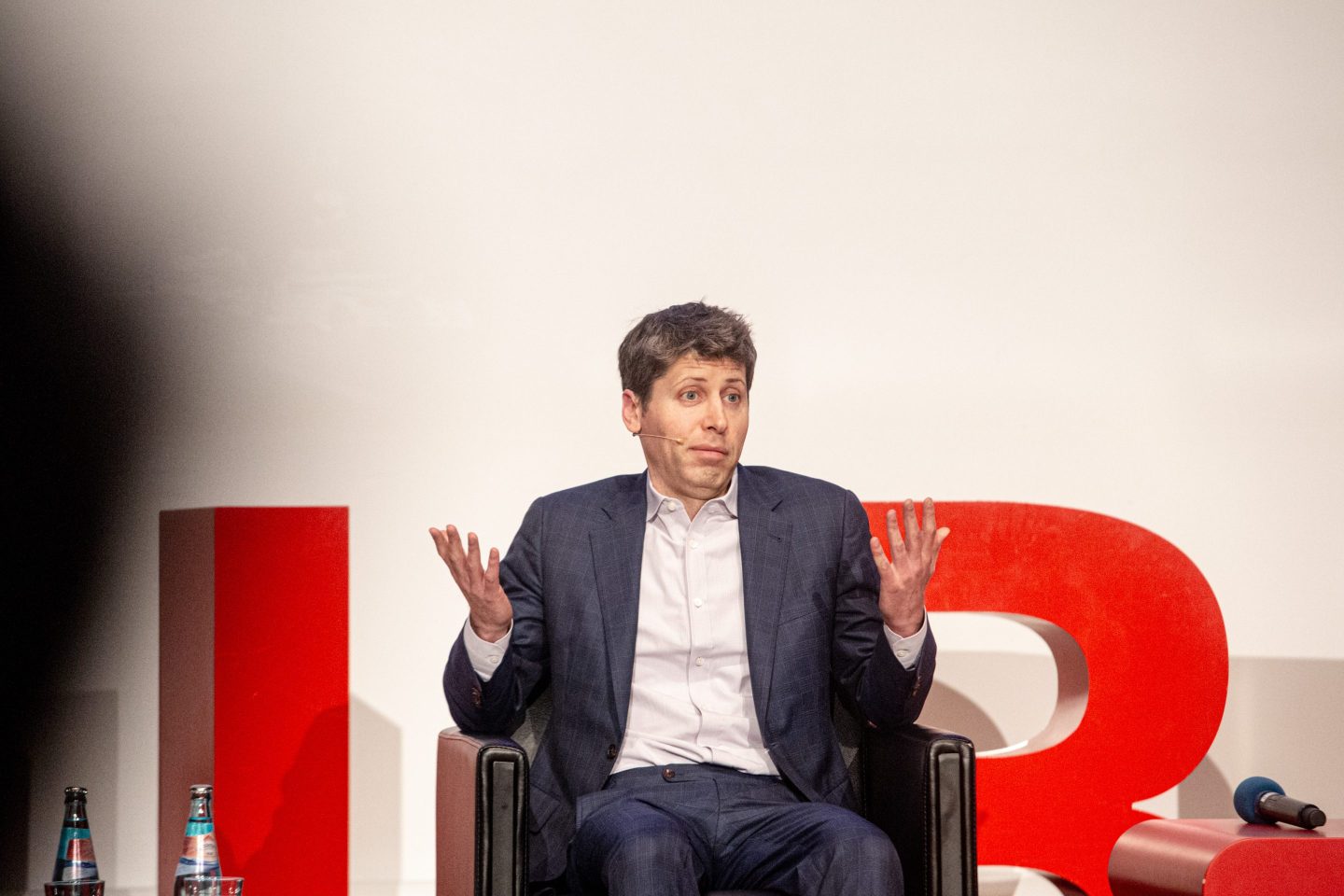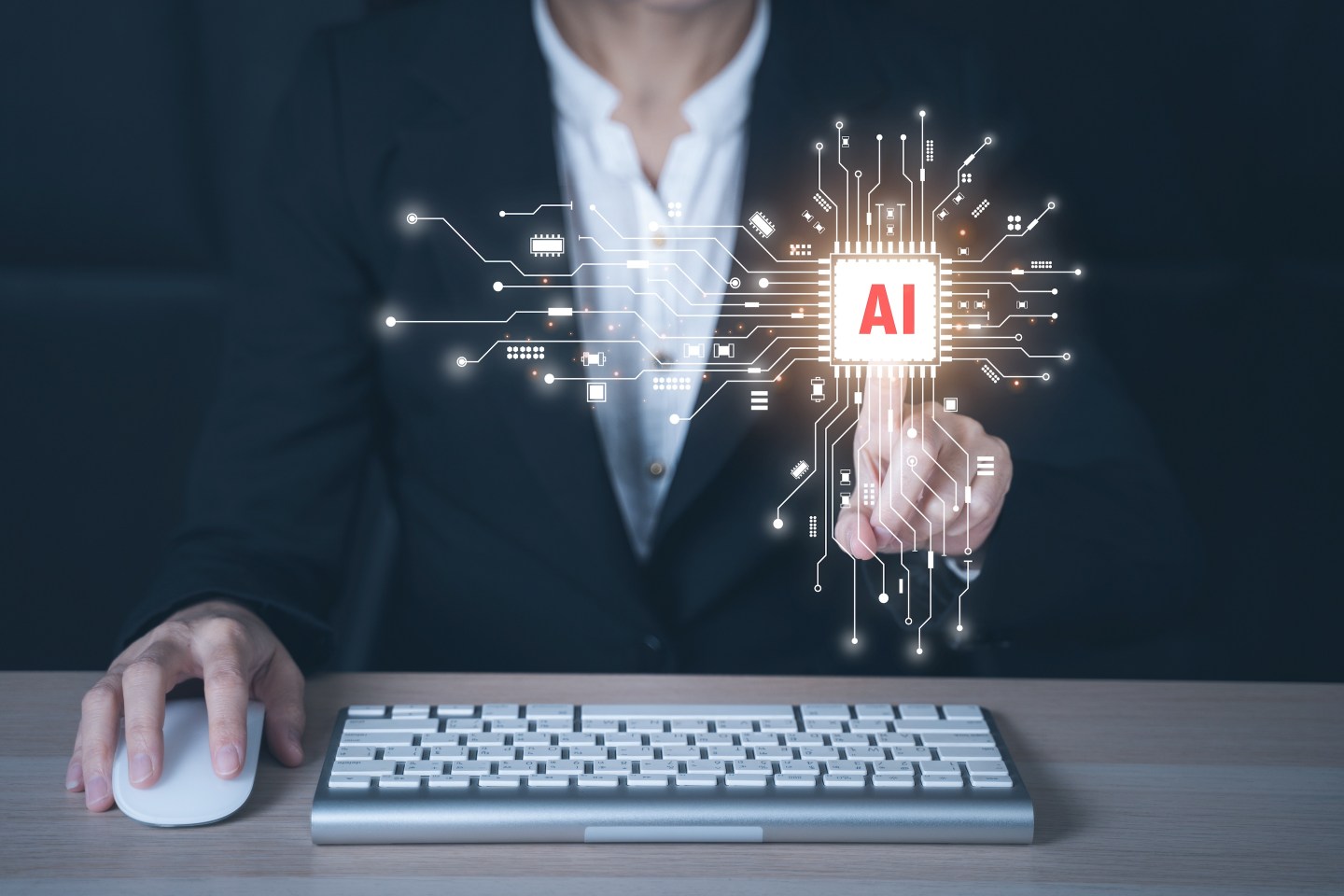Good morning. As the U.S.-China geopolitical standoff continues—and the AI race continues unabated—you’ve got to feel for TSMC.
On the one hand, the world’s largest pure-play semiconductor foundry is raking it in as clients like Apple and Nvidia task it with making their custom wares. On the other, it’s a Taiwanese company—an already complicated affair when it comes to the P.R.C.—whose biggest clients are American.
In a new article, Fortune colleague Lionel Lim details the precarious position in which the company finds itself as two world powers dig in. It’s like a love triangle in a rom-com—except there’s nothing funny about it. Love hurts, I guess. —Andrew Nusca
Want to send thoughts or suggestions to Data Sheet? Drop a line here.
OpenAI launches GPT-4.5 with a shrug

OpenAI on Thursday unveiled one of the most highly anticipated products in the booming generative AI market: GPT-4.5.
But the launch of its latest AI model, coming two years after predecessor GPT-4 was introduced, only served to highlight how the high-flying AI company is struggling to stay at the front of the race it helped kick off.
OpenAI CEO Sam Altman said in a social media post that GPT-4.5 is the first AI that “felt like talking to a thoughtful person,” and that he has been “astonished” by the “good advice” it provides.
The company said testers of GPT-4.5 judged the model to have more “EQ”—or emotional intelligence—than previous OpenAI models. And GPT-4.5 is less prone to inventing information, a phenomenon known as “hallucination,” it said.
But OpenAI also sought to tamp down expectations. “This isn’t a reasoning model and won’t crush benchmarks,” Altman warned, describing a “different kind of intelligence.” The company emphasized softer, more qualitative metrics for assessing GPT-4.5’s improvements.
In many ways, GPT-4.5 represents the end of an era for OpenAI. The model’s successor, GPT-5, is expected to combine the fast, instant answers of GPT models with the more deliberative logic of new “reasoning” models.
In the meantime, what is clear is that OpenAI no longer has the clear lead in the AI race. That position has now passed to Anthropic, with challenges from China’s DeepSeek, Google, and Meta. —Jeremy Kahn
We just witnessed a major shift in U.S. cybersecurity policy
Tulsi Gabbard’s decision to bash the U.K. government for trying to force Apple to backdoor its Advanced Data Protection feature for iCloud (Apple responded by yanking the feature from the U.K.) is an extraordinary development—and one that British civil liberties activists are quite pleased about.
The new U.S. Director of National Intelligence’s move marks a rare crack in the orthodoxy—long held by the U.S. and its allies—that strong encryption is a problem that needs to be bypassed if intelligence agencies are to do their work properly.
As the NSA leaker Edward Snowden testified just over a decade ago, countries’ surveillance of foreigners often benefits their partners through behind-the-scenes cooperation. For example, the U.S. isn’t supposed to spy on its own citizens, but British spooks might, then quietly pass their findings over to their American friends.
Gabbard has now highlighted and complained about how the U.K.’s newest espionage tactics represent a privacy violation for Americans, while also creating a “serious vulnerability for cyber exploitation by adversarial actors.”
“The U.S. Director of National Intelligence appears to have determined that the risks of bad actors exploiting a backdoor vulnerability outweighs any benefit to law enforcement,” James Baker, a free speech program manager at the U.K.’s Open Rights Group, told me.
“This is consistent with what many cybersecurity experts have argued. The U.K. and Home Office appear increasingly out on a limb with their demands to weaken common and widely used cybersecurity features.”
Gabbard’s appointment may have rightly freaked out many people due to her Kremlin sympathies, but on this particular point she seems to be making an argument that many technologists have long wished politicians would understand. —David Meyer
Stripe reaches a $91 billion valuation
Payments giant Stripe will offer employees the chance to cash out some of their equity at a $91.5 billion valuation.
The company will undergo what is called a “tender offer,” which is a financial maneuver that gives investors and employees the chance to sell their equity in a private company. This specific tender offer from Stripe will only be available to current and former employees, a spokesperson told Fortune.
Over its history Stripe has undertaken several previous tender offers. Employees and investors usually welcome the opportunity to do so because it allows them the chance to gain some liquidity from their stake in the company, should they choose to.
Stripe’s existing investors include some of Silicon Valley’s premier VC firms such as Joshua Kushner’s Thrive Capital, Peter Thiel’s Founders Fund, and Andreessen Horowitz. The company said it also plans to repurchase shares.
In an annual letter summarizing its 2024 performance, Stripe detailed a year of exceptional growth, as its total payment volume grew 38% to $1.4 trillion. Stripe also said it was profitable in 2024 and that it expected to continue being so for the foreseeable future.
Over the years Stripe’s cofounders, Patrick and John Collison, have resisted any entreaties to take the company public. That remains the case today, according to recent statements they’ve made. In the meantime, Stripe is one of the most valuable private tech companies in the U.S. alongside the likes of OpenAI, SpaceX, and Databricks. —Paolo Confino
More data
—Most memecoins are not securities, SEC says. They’re more like collectibles, and should not be protected by federal securities laws.
—HP’s outlook is softer than expected. To blame: “The current U.S. tariff increases on China, and associated mitigations.”
—Meta plans to launch a standalone AI app. It’s coming in the second quarter along with a paid subscription service.
—Autodesk will cut 9% of its workforce. About 1,350 employees will be sent packing as part of an activist investor-induced push for profitability.
—FAA may cancel Verizon’s $2.4bn comms contract in favor of Starlink, whose parent company, SpaceX, it regulates.
—Dell predicts a profit decline. Higher costs to build AI servers? Check. Fiercely competitive market? Double check.
—Amazon debuts quantum chip. AWS division unveils Ocelot, built in partnership with Caltech. It requires “as little as one-tenth as many resources as common approaches.”
—Microsoft outs global cybercrime network abusing generative AI tools by bypassing their guardrails.
—Sony’s PlayStation VR 2 gets a price cut. The virtual reality headset is now $400 instead of $549. It works with the PS5 and PCs.
—Tencent debuts Hunyuan Turbo S AI model. Fast, cheap, and not called “DeepSeek.”













